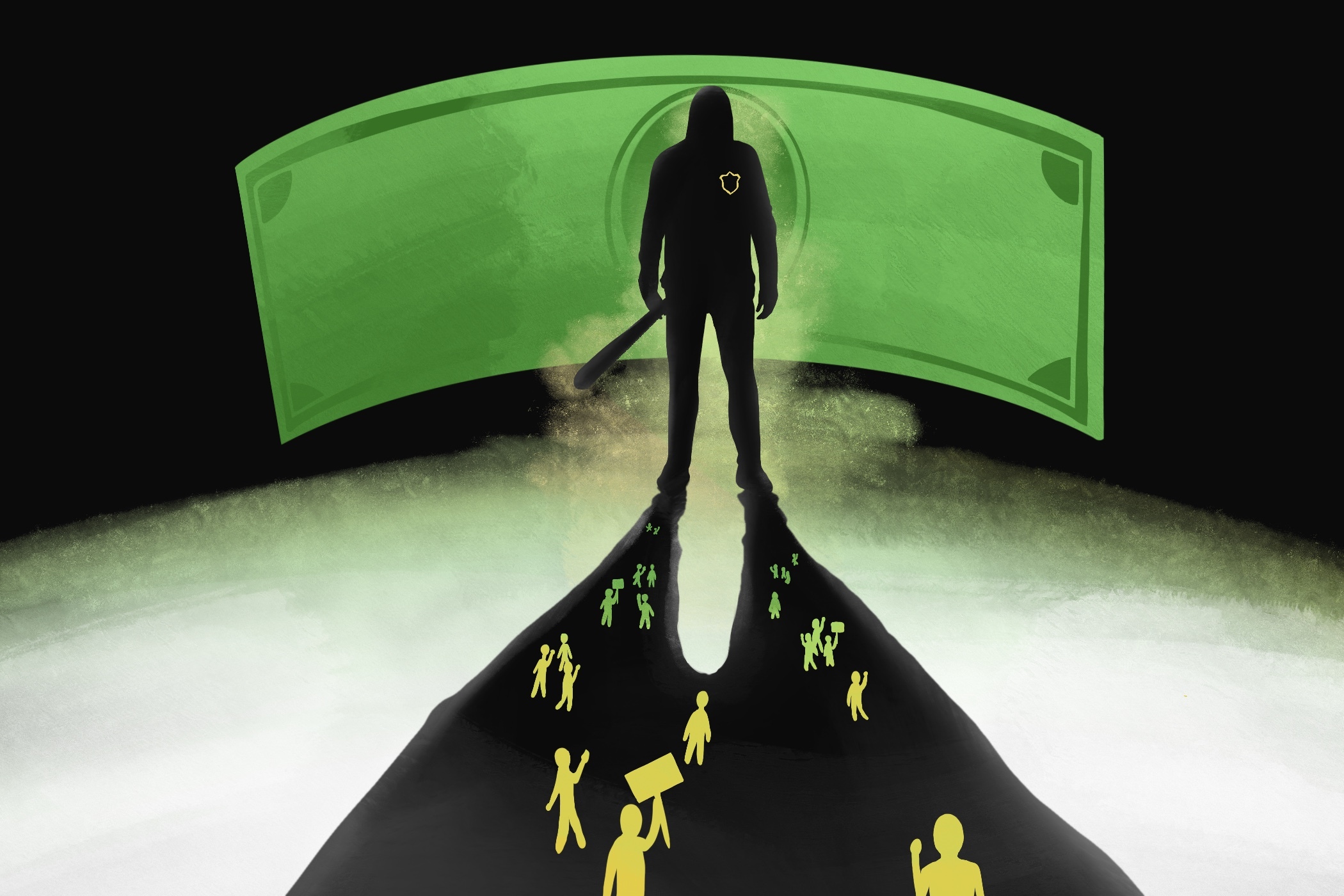Former president Barack Obama recently criticized Democrats for using “defund the police” as a “snappy slogan” to describe the movement that he believes wants to “reform the criminal justice system to treat everybody fairly.” He further warned liberals against using the slogan as it would lose a “big audience” and would make it “a lot less likely that you’re actually going to get the changes you want done.” Obama would later clarify that his issue was not the actual idea of redistributing police resources, but rather the language used to push for it.
Rather than just a comment on police reform and its accompanying language, Obama’s comments are emblematic of the much greater debate between moderates and progressives in the Democratic camp on a wide swath of issues such as climate change and health care. The anti-policing movement is just another issue many moderates have been hesitant to incorporate into their belief system. The topic has especially become prominent in the aftermath of George Floyd’s death and the intense revival of the Black Lives Matter movement in June.
Even as many progressives in the Democratic camp continue to publicly support the political aims of defunding the police — and chastise moderates for opting for reform instead — most progressives still often neglect to recognize that “defund the police” is in itself not another word for police reform. The movement itself perhaps even co-opts the initial anti-policing movement that pushed for the abolition of police. Significantly more controversial than its successor, the movement for police abolition has become taboo not only due to the disapproval from even progressive Democrats, but also because of the misinformation surrounding it. To have any dignified debate on these three political positions, one must know the difference between the three terms.
While none of these movements are particularly monolithic, there are some core beliefs in all three that can be explained to further an understanding of the movements’ differences, overlaps and flaws.
Police Reform
At its foundation, advocates of police reform believe that America’s policing system is not fundamentally broken but rather just requires change.
With an increase in oversight, policing and the police can become more effective and trustworthy. Those who advocate for police reform tend to be more moderate (while still left-leaning) on the political spectrum. These advocates seek to implement procedural reforms that would force officers to become more accountable to the public (i.e. body cameras).
After the killing of Michael Brown and Eric Garner by police officers, the Obama administration’s President’s Task Force on 21th Century Policing released a final report that expressed their support for procedural reforms such as implicit bias training, tweaks to use-of-force policies and an increase in the number of community and police relationship-building sessions.
President-Elect Joe Biden is perhaps currently the most prominent politician who believes in police reform. His plan to increase the budget of the Community Oriented Policing Services by $300 million is representative of this movement’s belief that the policing budget needs to increase in order to have more effective policing. Biden has also defended his support for the 1994 crime bill that put 100,000 new police officers on the street and spent nearly $10 billion on prisons.
This philosophy has many flaws that have justifiably caused dismay among progressives. After the death of Eric Garner — who uttered the lines, “I can’t breathe” in his final moments after being arrested and placed into a chokehold by a New York Police Department (NYPD) officer — an anti-chokehold act was passed to prevent the situation from occurring again. However, in 1993 the NYPD had already banned the use of chokeholds by officers, and this ban was still not enough to stop the officer from using the practice to kill Garner.
Minneapolis, the city in which George Floyd was killed, had already instituted many procedural reforms, and the environment in which Derek Chauvin knelt on Floyd’s neck for nine minutes was still able to fester.
Defund the Police
Leftist opponents of the police reform movement have adopted a more extreme approach to reforming the police and have pushed for defunding. The movement to defund the police simply means to divest and reallocate substantial funds from law enforcement into other social service programs that would combat addiction, mental illness, homelessness and promote vocational training. The timing and methods by which these police departments will be defunded vary. Many cities across the United States spend a hefty amount of their budgets on police spending, ranging from 20% to 45% of discretionary funding in major metropolitan areas. In Chicago, the total police budget takes 37% of the general fund while in Atlanta, the budget takes 30% of the city’s funds. By taking these massive funds and investing them into social services, advocates believe that crime will decrease.
Miriame Kaba, an abolitionist who supports the initial and immediate defunding of the police, states, “Cut the number of police in half and cut their budget in half. Fewer police officers equals fewer opportunities for them to brutalize and kill people.”
New Jersey has already successfully attempted to make this movement a reality in Camden. The entire city’s police force was fired, and policing was undertaken by community activists. Crime and police violence are reportedly down in Camden.
Police Abolition
However, the proponents of police abolition argue that neither procedural reforms nor reforming policing is enough to stop the brutalization of vulnerable populations, as policing itself is a racialized tool of social control. Advocates often cite the racist history of policing and its enabling of white supremacists groups such as the Klu Klux Klan.
While most police abolitionists like Kaba believe that defunding is the first step to abolition, and there are no real policy differences between the two, abolishing policing has a much greater long-term goal. The goal to abolish police echoes the ideas of Marxism and social justice, which envisions a communal society that fulfills basic human needs. If this communal society exists, the need for policing — and prisons — becomes essentially unnecessary.
Critics of this movement often focus on the idea that this sort of society could never realistically exist, and deduce that police abolition would also be unpragmatic.
Expressing her thoughts on police abolition, Jenn Jackson, a political scientist from Syracuse University, stated,
“By ‘abolish the police,’ I mean building a world where we do not rely on anti-Black, white supremacist institutions of order to regulate society. This means that alternative forms of order might be embraced, like community care networks and justice structures rooted in restoration rather than punishment.”
As for unavoidable violence, advocates for police abolition believe that trained professionals could respond to violence better than today’s police force. The main difference between those who believe in defunding the police and those who believe in police abolition is that the former believe that the police are needed in true emergencies and cases of violence while the latter does not.
Many communities across the U.S. do not call the police for emergencies due to a history of traumatic experiences. Therefore, ensuring that public safety is upheld by professionals rather than the police would allow vulnerable populations to feel safer in calling for assistance.
Many of those who believe in police abolition and defunding the police currently demand an overturning of the Law Enforcement Bill of Rights and the disbanding of police unions, both of which make it much harder to advocate for victims of police brutality and investigate officers for misconduct.
Many progressives who support defunding the police have essentially co-opted many ideas of the prison abolition movement and repackaged it into something more appealing and capitalist-friendly.
Elaborating on the importance of the language of abolition, Christy Lopez, a law professor from Georgetown, explained, “For me, the language of abolition is important because it reminds us that there are facets of policing that reflect and perpetuate America’s longstanding use of state-sanctioned coercion, including violence, to control the bodies of Black people.”
Moderate Democrats such as Obama will consistently try to water down the language of radical movements — such as the one to defund and abolish the police — in an attempt to push them toward more moderate aims.
Therefore, it is imperative we recognize the importance of these slogans and the goals that accompany them.

















